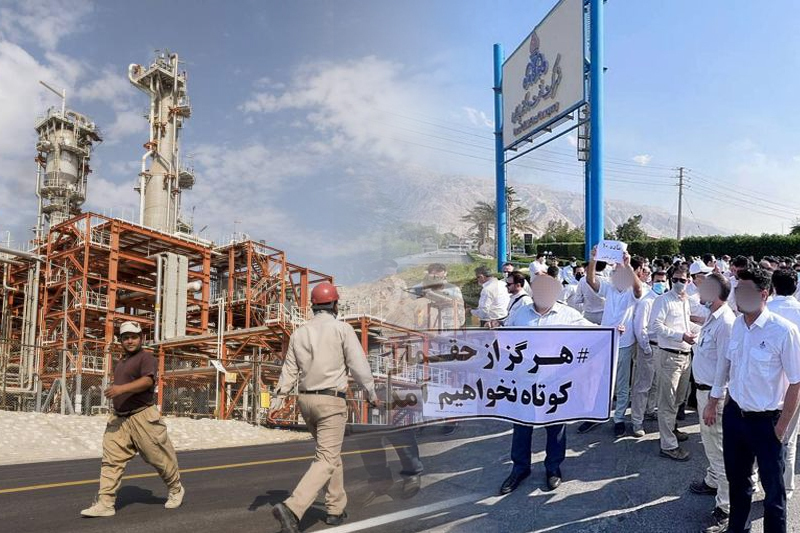
iranian oil workers protest to get higher wages
The Iranian oil workers’ protests come amid a long-term unrest across Iran that has given a boldest challenge to the Islamic Republic after the 1979 revolution.
According to reports and videos posted on social media, protestors from the oil industry staged demonstrations in southern Iran Saturday. Iranian workers demanded higher wages and retirement bonuses.
The protests by oil workers, which couldn’t be verified by news sources, are occurring amid a long wave of unrest in Iran, which has posed the most serious threat to the Islamic Republic since 1979.
Iran’s oil ministry did not immediately comment on the reports of protests by oil workers. The Iranian media has often failed to report details about the unrest occurring in Iran.
According to the activist news agency HRANA, a group protested in front of the Pars Oil and Gas Company (Asaluyeh) in southern Bushehr on the Gulf.
The union stated that the demands of the protesting workers included wage increases and pension bonus, as well as the removal and cap on high income taxes, and improved welfare services and conditions.
Keep Reading
In a video by HRANA, workers at Asaluyeh were heard shouting,
“We don’t want a lying Minister”, referring to Javad Owji, Oil Minister. Asaluyeh houses Iranian installations that exploit the largest offshore gas field in the world, which Iran shares across the Gulf with Qatar.
HRANA and other social media featured videos and photos of similar protests by oil workers, including Ahvaz (capital of the oil-rich Khuzestan Province), Gachsaran, and Mahshahr.
According to social media reports, protests were also held at the gas installations in Tang-e Bijar, in the west, and Gonabad, in the northeast.
News sources could not verify the videos or accounts on social media till that time.
Iran is currently experiencing wider unrest after Mahsa Amini’s Sept. 16 death. She was 22 years old and was detained for wearing inappropriate attire under Iran’s strict Islamic dress code.
A combination of protests, strikes by oil workers, and bazaar traders helped to sweep Iran’s Shiite Muslim clergy from power four decades ago.









